Raw materials

Woodwaste
Sawdust, wood chips, waste of plywood production, slabs, rods, trimmings, balance sheets, bark.
1. What today represent a wood waste for the majority of timber processing enterprises?
1.1. This is the main type of products, because usually more than 50% of the initial quantity of raw materials goes in the waste.
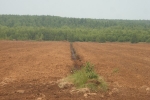
Peat
Peat is money. Under your feet. A Lot Of. It Very Much!
Peat - fuel minerals, formed in the process of dying and incomplete decomposition of marsh plants in humidity conditions and limited access of air.
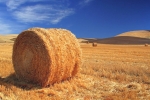
Straw
Straw - dry stems of plants, as a rule, exempt from the leaves, flowers and seeds. Straw for transportation, storage and further use is pressed by special machines in rolls or bales. By sustenance it’s considerably inferior to the hay.

Lignin
Lignin is a complex organic natural polymer, in the base of the lignin formula is the benzene ring. Lignin is located in the outer layers of the cell membranes of the wood mainly. This fact explains its name, from the Latin Lignum - tree wood. Deposition of lignin in the cell walls of plants leads to an increase in their strength and lignifications. Lignin is an amorphous substance of yellow-brown color; insoluble in water and organic solvents.
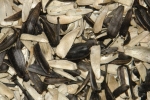
Husk
Husks (husk) - outside the shell plant seeds. The best known is the husks received when shelling seeds of sunflower, rice, buckwheat. It has various applications in agriculture as an additive in animal feed, as a component in the manufacture of substrate for mushrooms cultivation, in hydrolysis industries for production of alcohols and fodder yeast.

Grass
If we consider the grass as raw materials for the production of feed of farm animals, the grass is a mass of freshly cut stems, leaves and buds herbal plants. In this connection mown grass in agriculture is often called the mass of green.
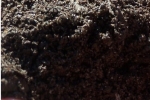
Sapropel
Sapropel - muddy humus deposits of plant and animal origin at the bottom of the closed freshwater (marshes, lakes), containing a large amount of organic substances in a colloidal state.
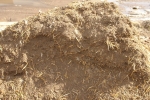
Manure and litter (dung)
Manure and litter - the major products of livestock breeding and poultry farming. This is not a bug. A Joke? May be. But the animals and birds excrete these products in dozens of times more mass than of meat, milk and eggs. Daily manure and litter is produced in a huge amount. For example, the average poultry farm produces about 200 tons of manure per day.
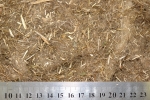
The fire flax
The fire - lignified parts of stalks of spinning plants (flax, hemp, etc.), obtained by their primary processing.
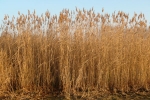
Reed, cane
Reed - a perennial herb of the cereal family.
The most profitable is the use of reed for the production of fuel briquettes and (or) pellets. This is due to the following: ...
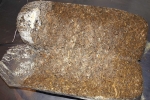
Mushroom substratum
By manufacture of mushrooms wreckers and activators of illnesses appear in a substratum despite all measures of struggle against them. They can not only spoil a crop, but also at all it destroy. Naturally, for the purpose of a non-admission of mass distribution of wreckers and illnesses of mushrooms the fulfilled substratum needs to be utilized ...
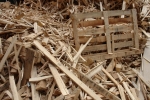
Wooden second-hand pallets
Consumption of people grows huge rates. More and more the goods moves from points of production to places of consumption. More and more pallets it is for this purpose used. More and more pallets fails. In big cities these pallets brought in one place, form mountains … and become a good source of raw materials for manufacture of fuel briquettes and pellets...
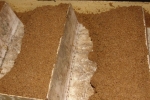
The spirit barda
The barda (the spirit barda) – the by-product in spirit manufacture, thus depending on technology on 1 liter of spirit turns out 10 … 15 liters of barda. Initially is a liquid (suspension) of light brown color with a characteristic "bread" smell or a grain smell, with the maintenance of solids 5 … 10 %. In such kind use and transportation of barda ...
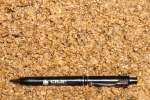
Beer pellet
Beer pellet - the by-product of the brewing industry received in the course of production of a mash from barley and malt. The share of a beer pellet in the total amount of waste of brewing production reaches 80%. In Russia – more than 400 breweries, and annually 1 brewery of average power "makes" to 35 000 tons of a beer pellet. The beer pellet is high-quality protein feed ...